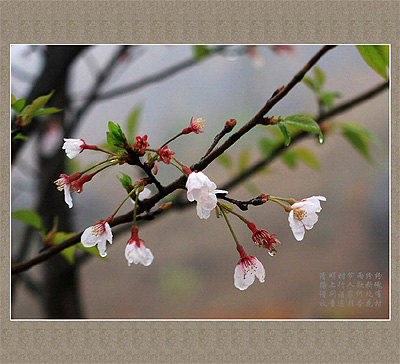| |
Qinming Festival originated from Hanshi Day (寒食节, literally, Day with cold food only), a memorial day for Jie Zitui (介子推, or Jie Zhitui). Jie Zitui died in 636 BC in the Spring and Autumn Period. He was one of many followers of Duke Wen of Jin before he became a Duke.
One time, during Wen's 19 years of exile, they didn't have any food and Jie prepared some meat soup for Wen. Wen enjoyed it a lot and wondered where Jie got the soup. It turned out Jie had cut a piece of meat from his own thigh to make the soup. Wen was so moved that he promised to reward him one day. However, Jie was not the type of person who sought rewards. Instead, he just wanted to help Wen to return to Jin to become Duke.

Once Wen became Duke, Jie resigned and stayed away from him. Duke Wen rewarded the people who helped him in the decades, but for some reason he forgot to reward Jie, who by then had moved into the forest with his mother. Duke Wen went to the forest, but couldn't find Jie. Heeding suggestions from his officials, Duke Wen ordered men to set the forest on fire to force out Jie, however, Jie died in the fire. Feeling remorseful, Duke Wen ordered three days without fire to honour Jie's memory. The county where Jie died is still called Jiexiu (介休, literally meaning the place Jie rests forever).
Qingming has a tradition stretching back more than 2,500 years. Its origin is credited to the Tang Emperor Xuanzong in 732. Wealthy citizens in China were reportedly holding too many extravagant and ostentatiously expensive ceremonies in honour of their ancestors.
Emperor Xuanzong, seeking to curb this practice, declared that respects could be formally paid at ancestors' graves only on Qingming. The observance of Qingming found a firm place in Chinese culture and continued uninterrupted for over two millennia. In 1949, the Communist Party of China repealed the holiday. Observance of Qingming remained suppressed until 2008, when the Party reinstated the holiday.
Editor: Shi Liwei
|
|
